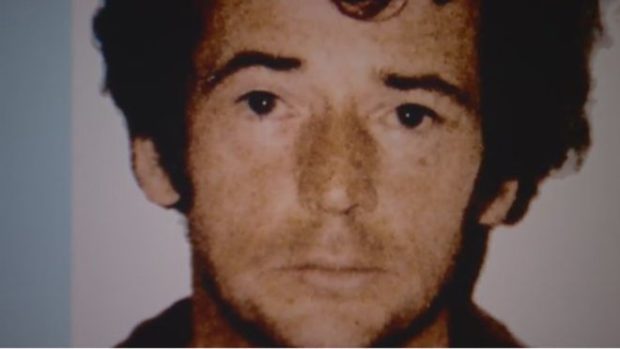
The legacy of Angus Sinclair’s violent crimes still casts a shadow over the families of women he is believed to have murdered.
Sinclair was jailed for 37 years, the longest sentence in Scottish legal history, for the World’s End murders of teenagers Christine Eadie and Helen Scott.
He has been linked to several unsolved cases from the 1970s including the murders of Helen Kane, Anna Kenny, Hilda McAulay and Agnes Cooney.
Their families have been left without certainty after 73-year-old Sinclair’s death overnight in HMP Glenochil in Alloa, Clackmannanshire.
Anna Kenny’s parents Frank and Mary, and her brother Frank junior have all since died.
Her 81-year-old aunt Agnes Byrne said: “He killed the whole family when he killed Anna.
“I had two girls myself and I always worry about them because of what happened to Anna.
“You never stop worrying about them.
“It’s still affecting people.
“I hope he dies roaring for what he put them through.”
Two of Helen Kane’s four sons also died prematurely, and their brother Michael, now 54, said last week: “I wonder how things would have been different if we’d had a mum.
“I would just like to know for certain what happened to her after all this time.
“When it happened we were all so young but as the years went on and we got older it was a case of always wondering.
“It’s not just us. There are other families who have had a loved one murdered and it might have been him.
“It’s really difficult to think that if it wasn’t him then someone else has got away with it.
“I don’t think we will ever know unless he says something before he dies.
“There’s probably not much time left to find out.”
Dr Stephanie Fohring, a criminology lecturer and specialist in victimology at Edinburgh Napier University, said when murders go unsolved it shakes the foundations of people’s beliefs.
She said: “This type of extreme crime is so shocking and so traumatic because it messes up how we see the world.
“It can be quite common in families who have lost a loved one to murder that the stress of it all can lead to disintegration and conflict.
“There is all this anger and tension, and often if there is no perpetrator caught then we don’t have a proper target for that anger so it can be turned towards loved ones or family members.
“It can destroy a family.”
Sinclair had been convicted of four killings but is suspected of several more where forensic evidence was either lost or does not exist.
He killed for the first time in 1961 when, as a 16-year-old, he raped and strangled seven-year-old Catherine Reehill then threw her body down the stairs of the tenement where he lived in Glasgow.
He served six years of a 10-year sentence for culpable homicide, and was jailed for life in 1982 for a string of rapes of young girls and boys. Advances in forensic science also led to him being sentenced to another life term in 2001 for the murder in 1978 of 17-year-old Mary Gallacher.
In 2004, a police review of unsolved murders linked him to the killings of Helen Scott, Christine Eadie, Hilda McAulay, Agnes Cooney, Anna Kenny and Frances Barker in 1977.
Cold case detectives also believe he was responsible for murdering Helen Kane in 1970 and Eddie Cotogno in 1979.
But the only successful prosecution came when Sinclair was convicted in 2014 of the World’s End murders.
DCI Dave Pinkney of Police Scotland’s Homicide Governance and Review department said: “The passage of time is no barrier to the investigation of unresolved murder cases.
“In the view of Police Scotland these cases are never closed. Police Scotland, along with our partners in the Scottish Police Authority Forensic Services, continue to relentlessly pursue advances in technology and investigative approaches which help bring those responsible for serious and violent crimes to justice and provide answers for families of the victims of such crimes.
“We committed to exploring all new developments in unsolved homicides. These cases are never closed.
“If anyone has any new information that could assist any of these investigations please contact Police via the non-emergency number 101, or call Crimestoppers in confidence on 0800 555 111.”
A Crown Office spokesperson said: “The Crown can only bring criminal proceedings where there is sufficient credible, reliable and admissible evidence in law to justify bringing a case to trial.
“As with all cases, we will carefully consider any new evidence.”

Enjoy the convenience of having The Sunday Post delivered as a digital ePaper straight to your smartphone, tablet or computer.
Subscribe for only £5.49 a month and enjoy all the benefits of the printed paper as a digital replica.
Subscribe